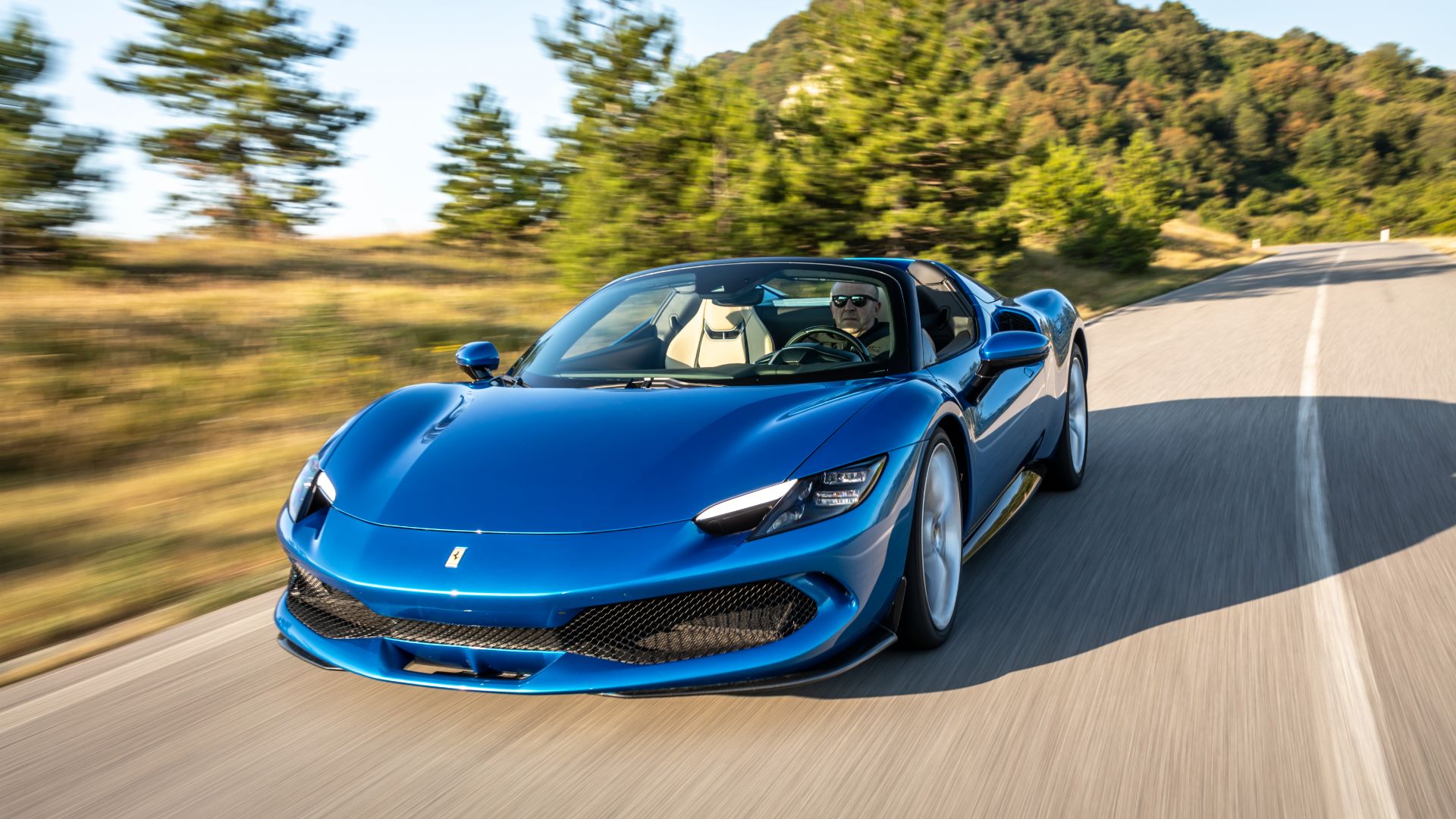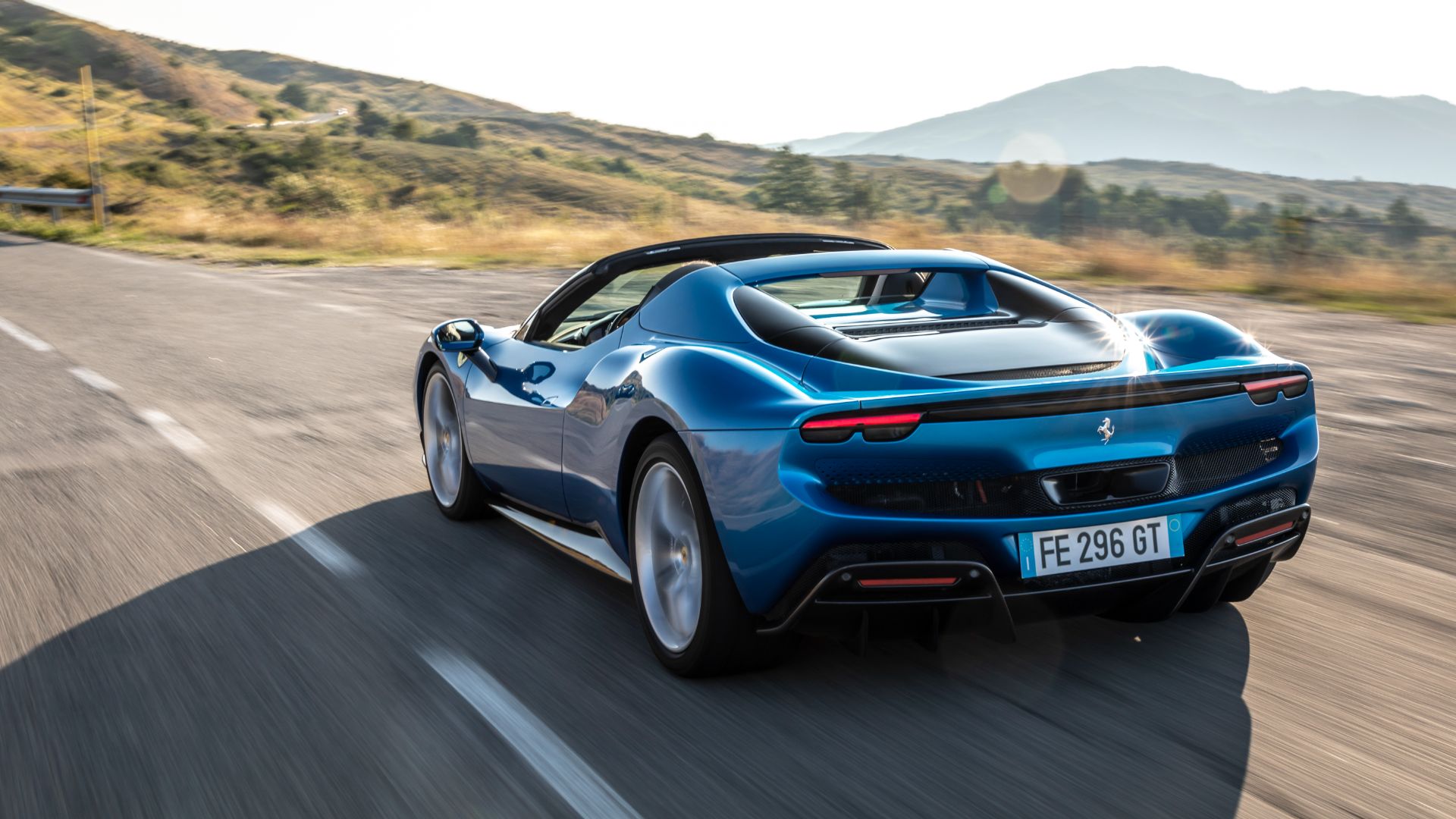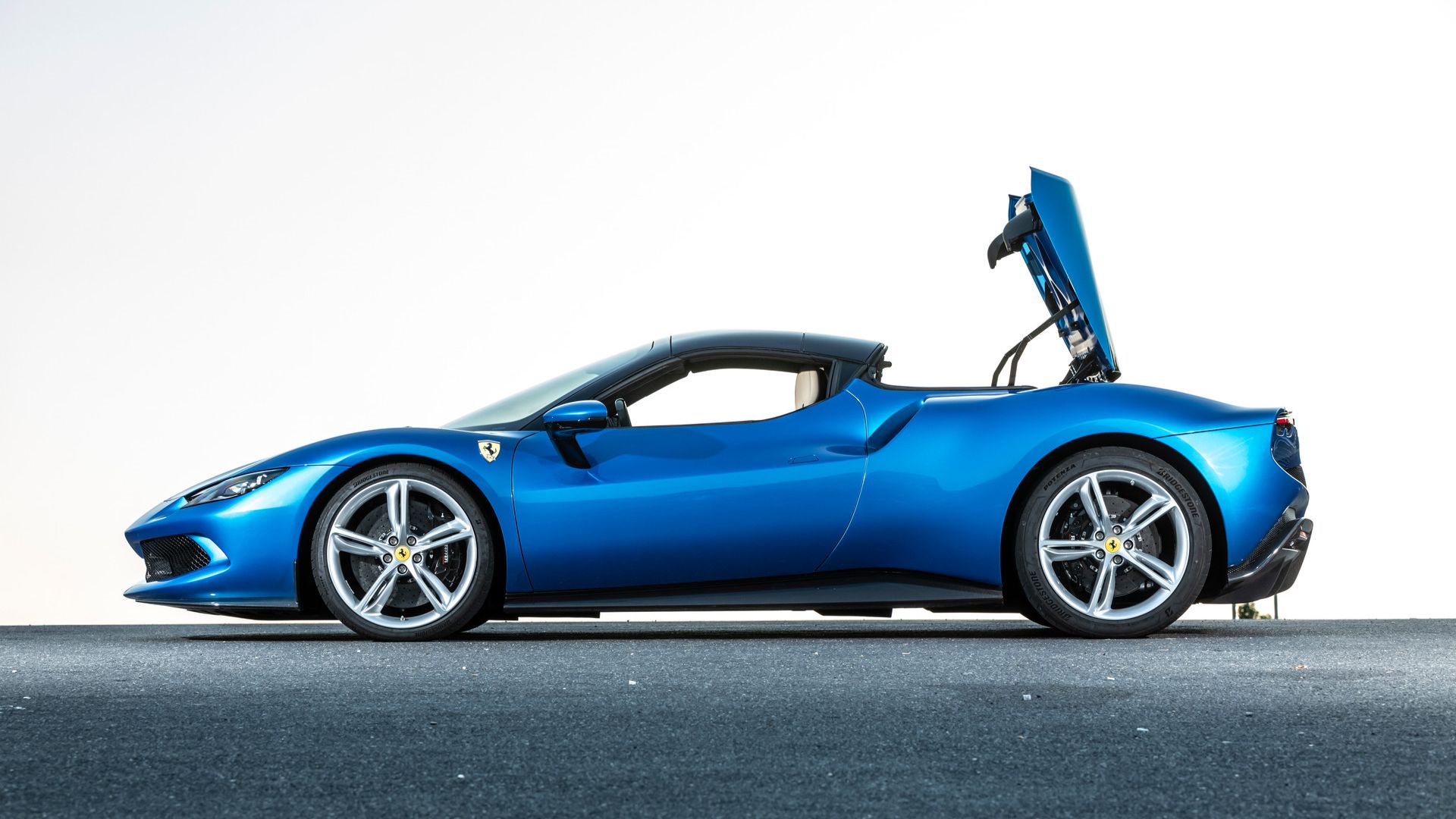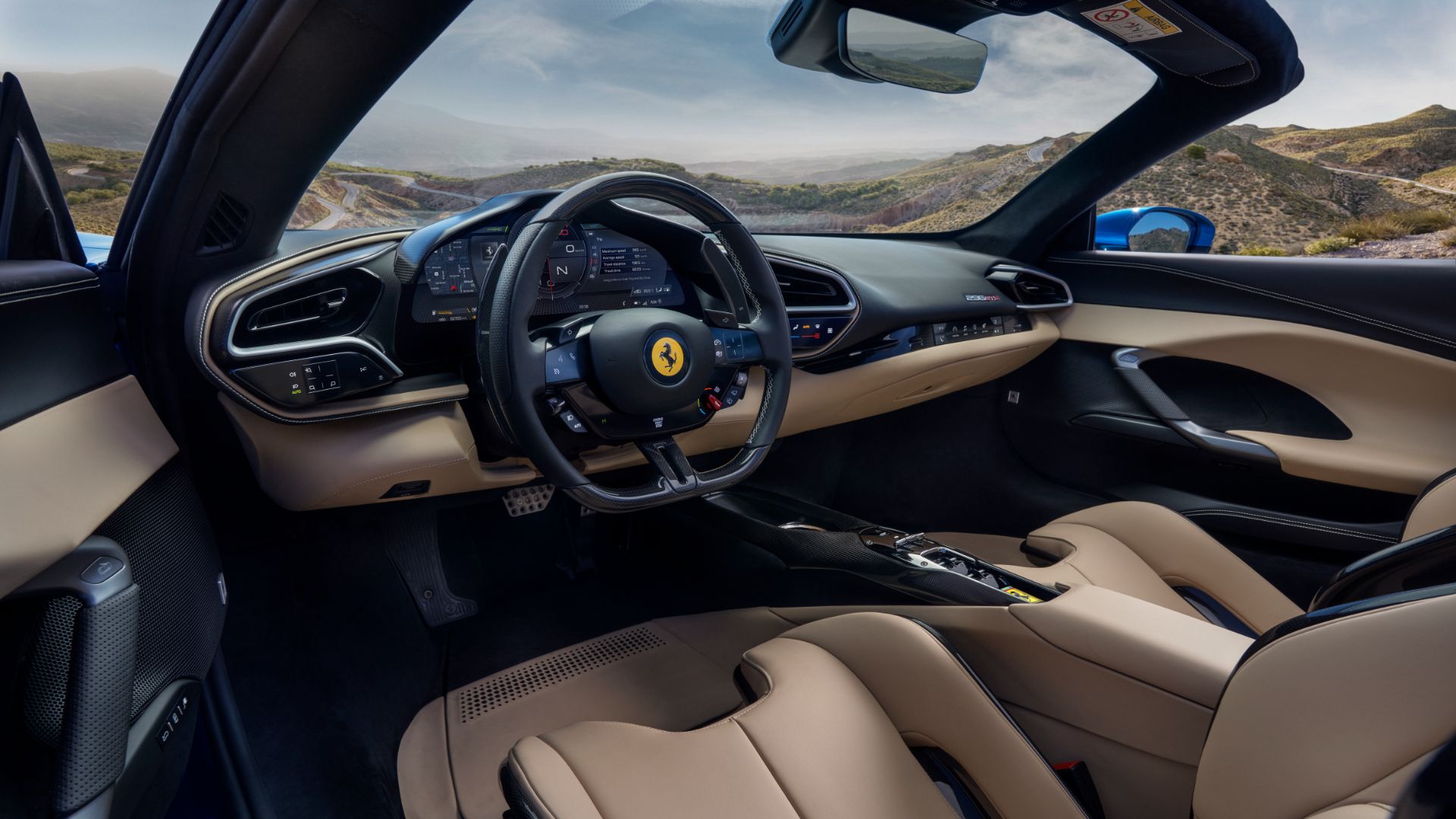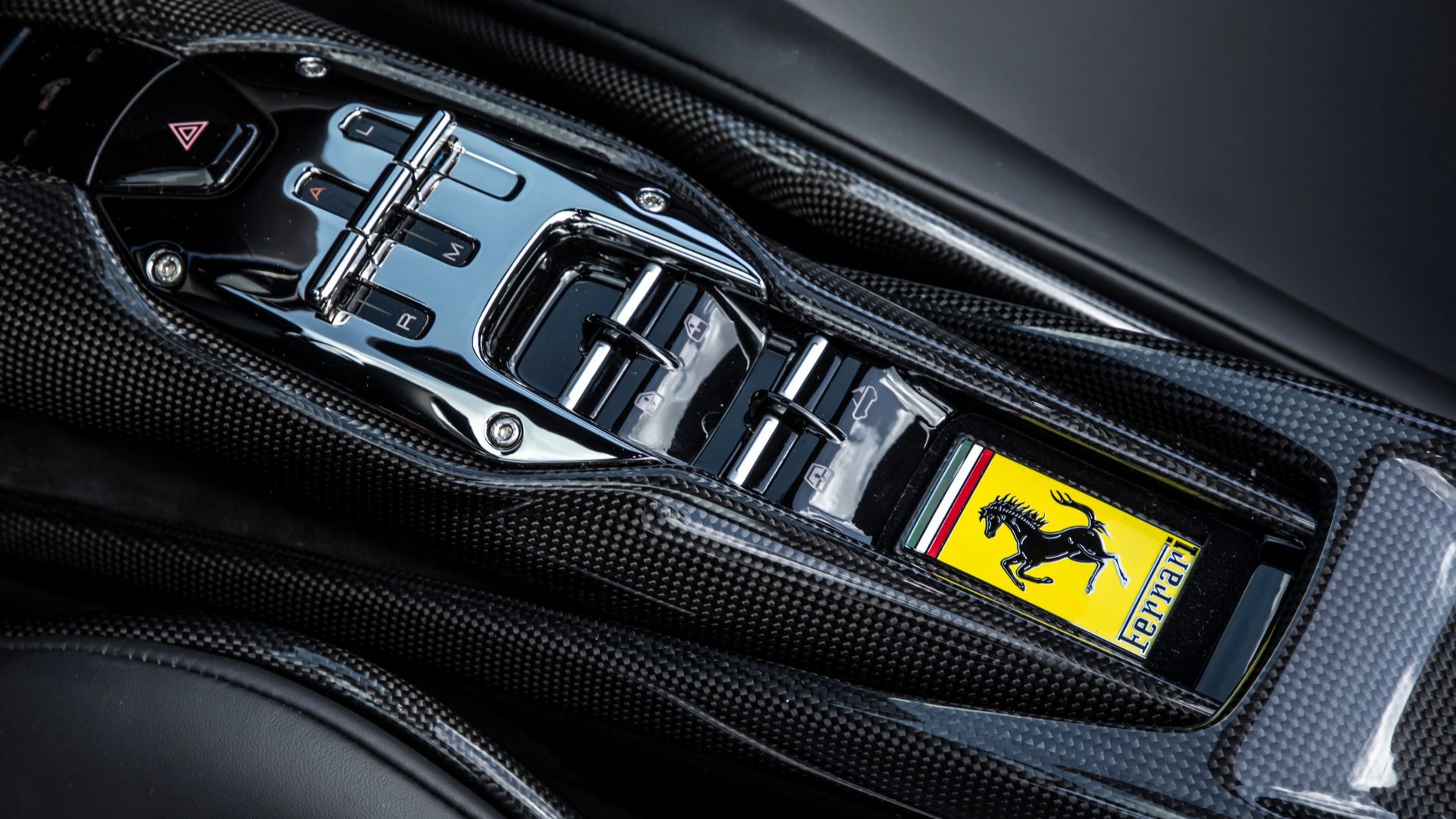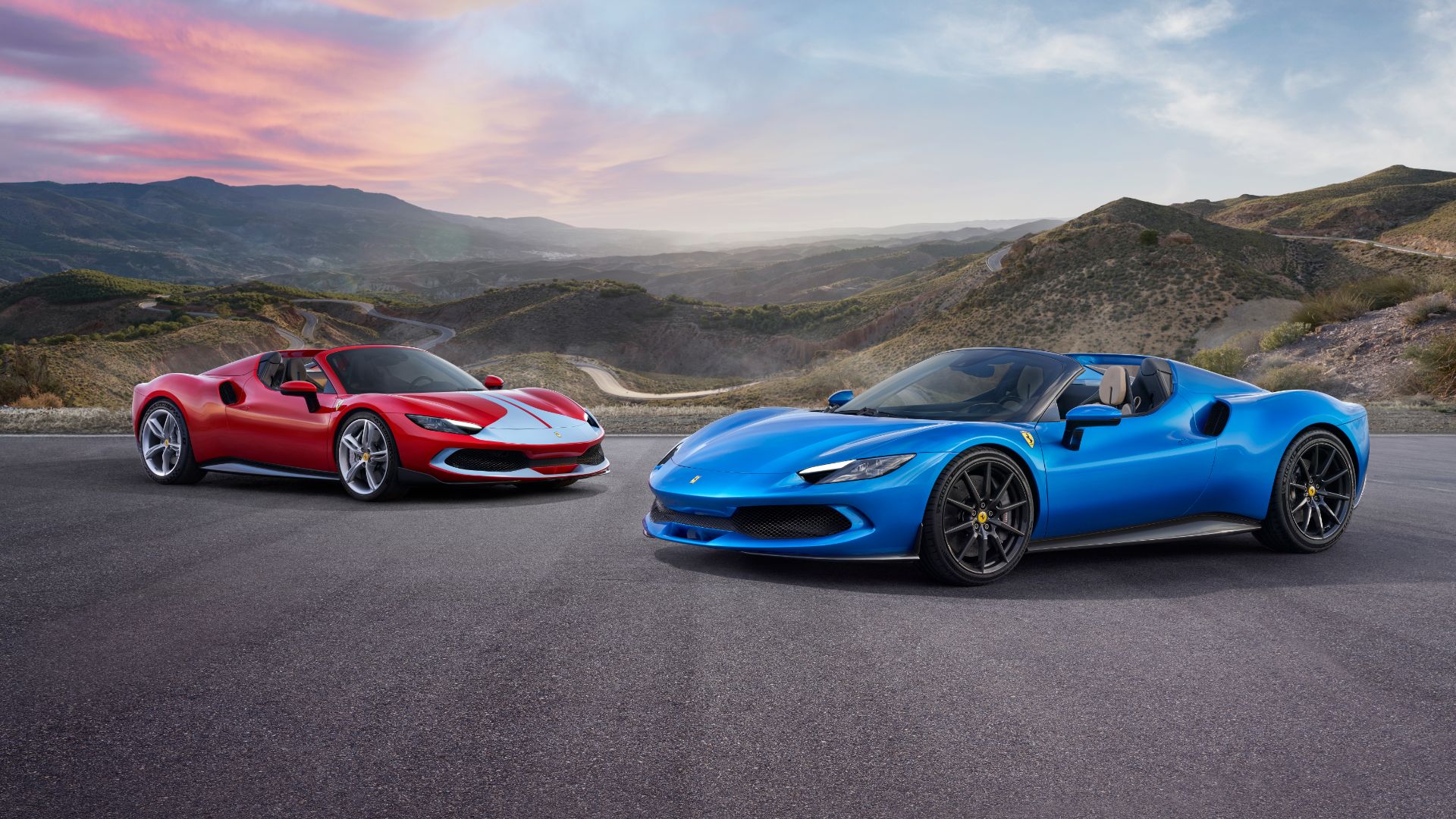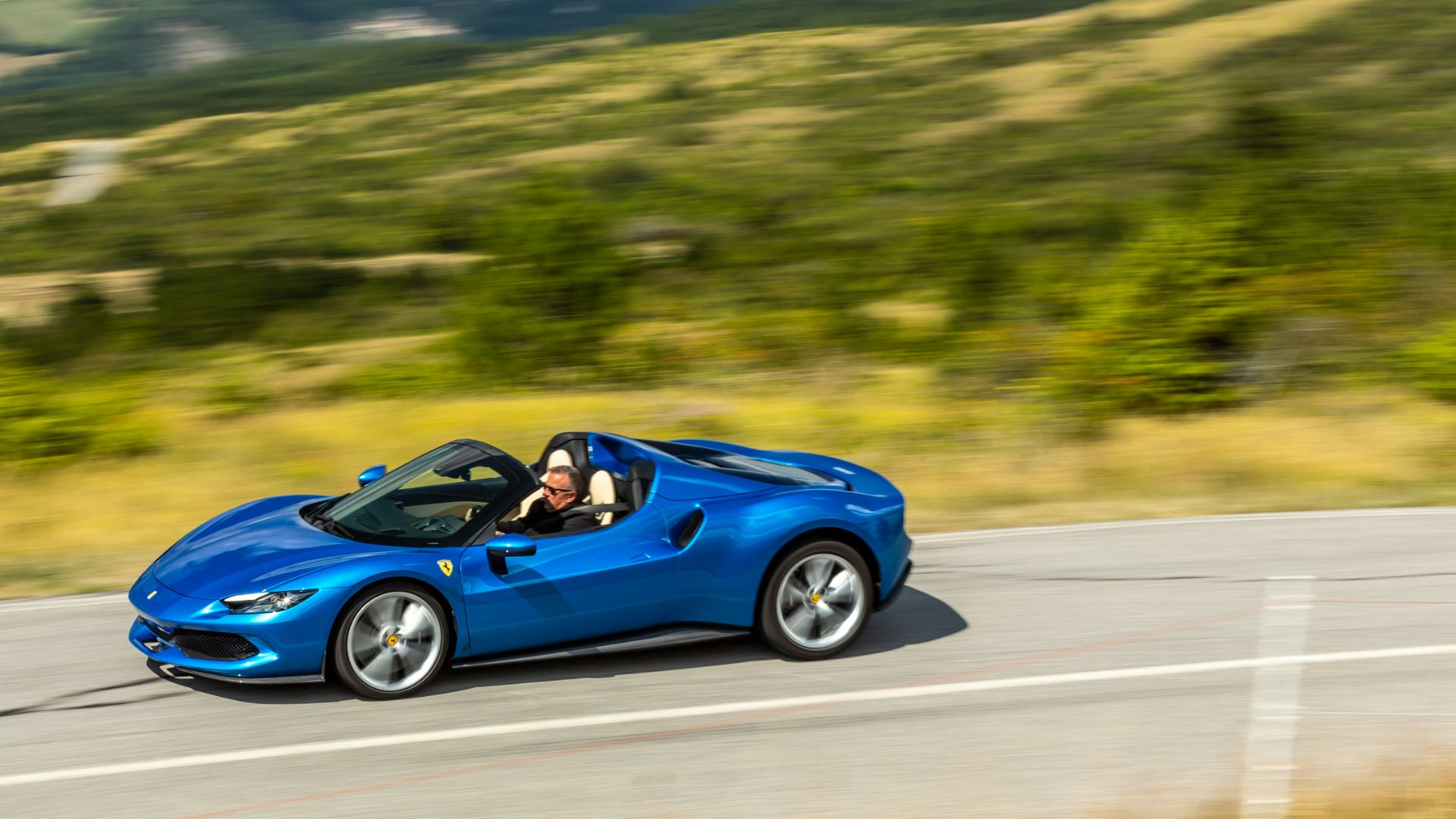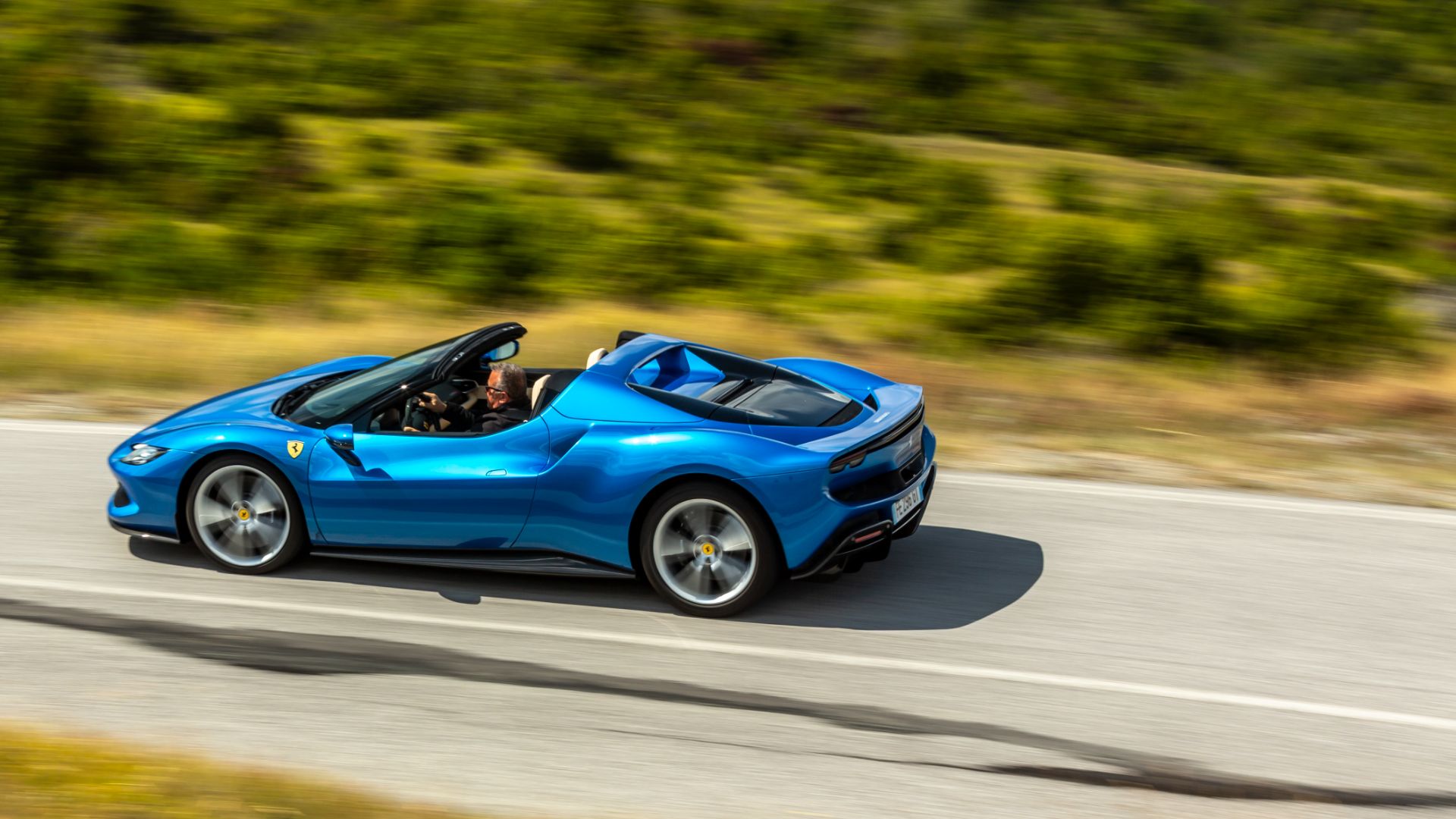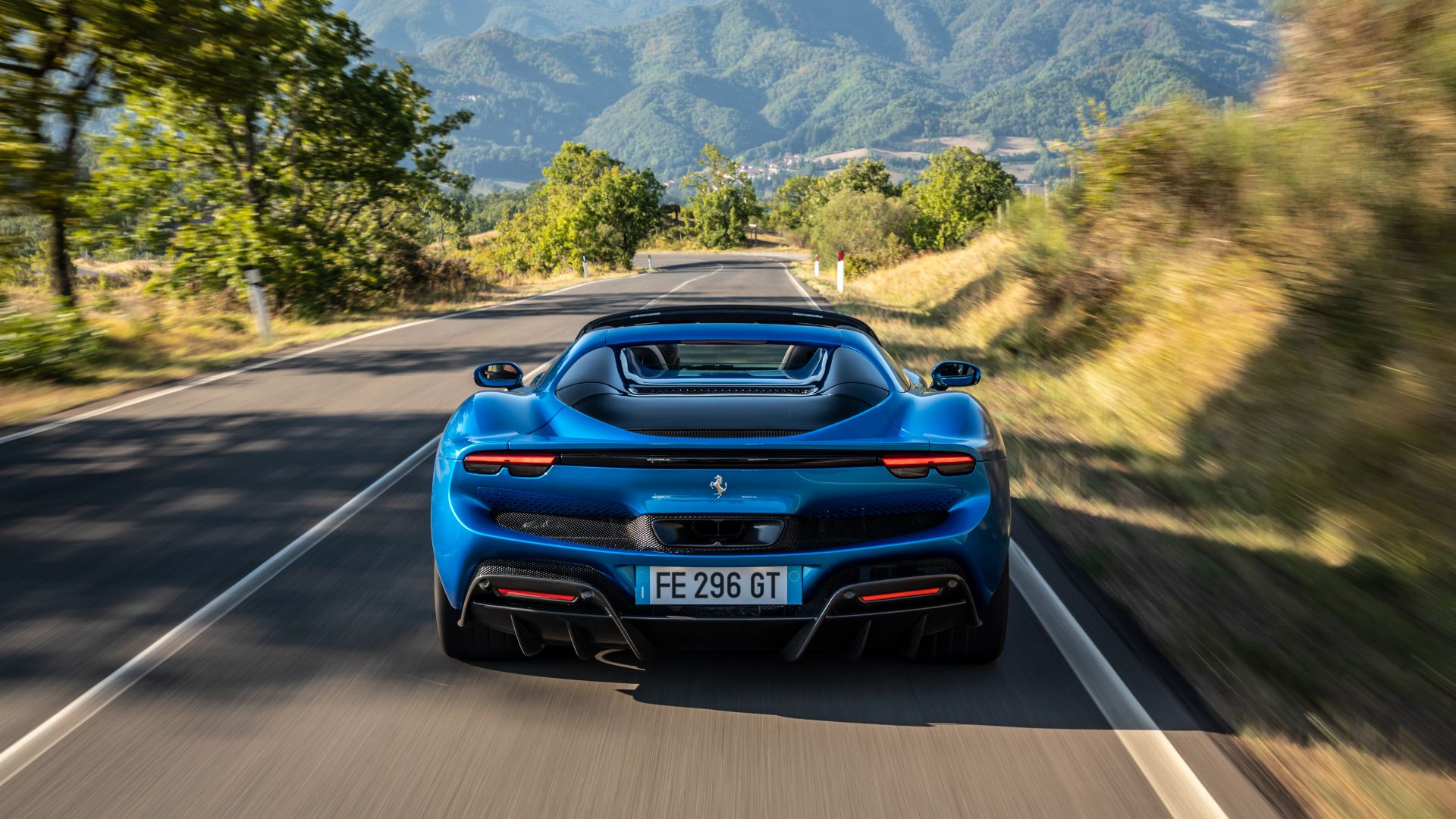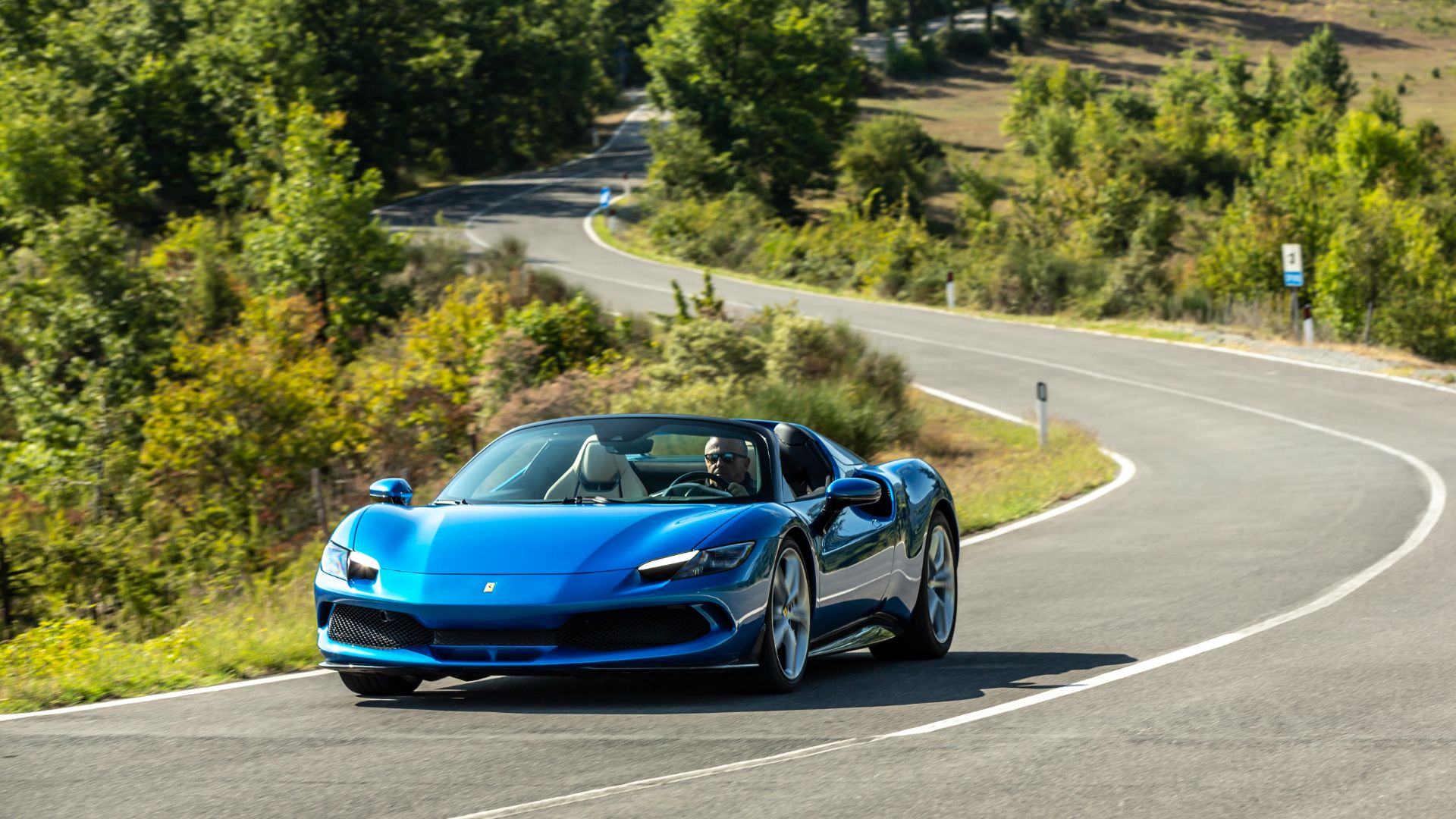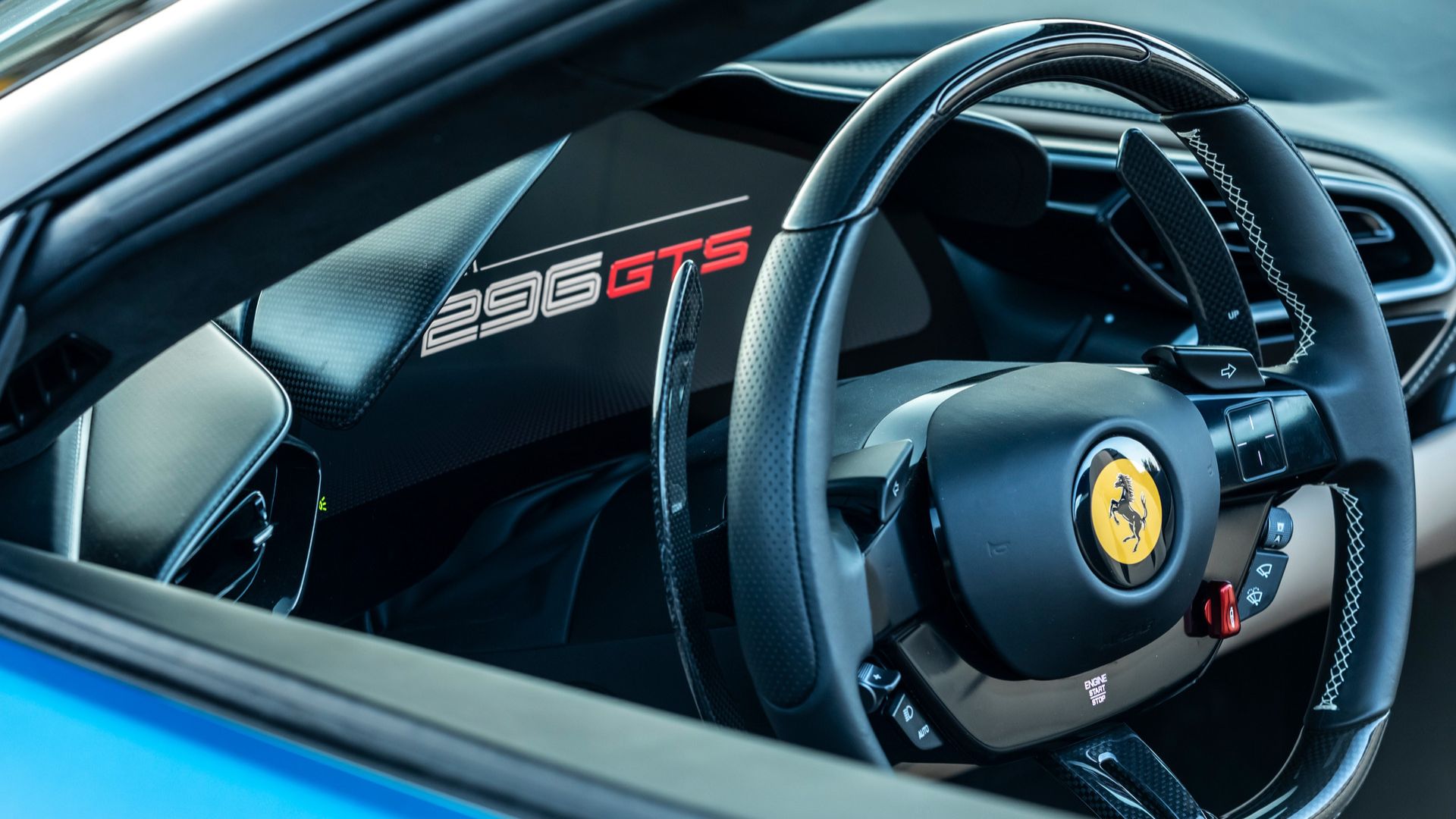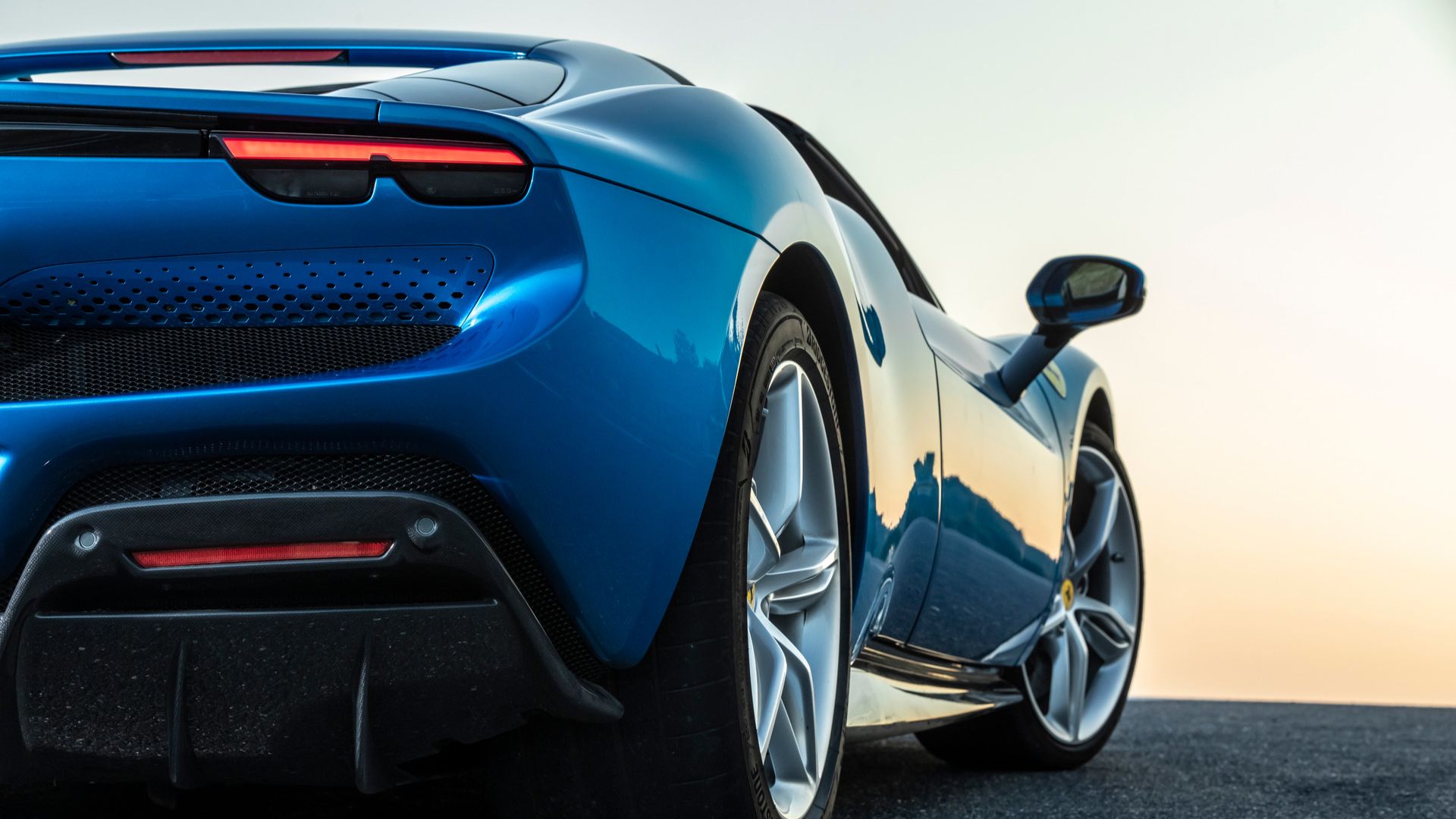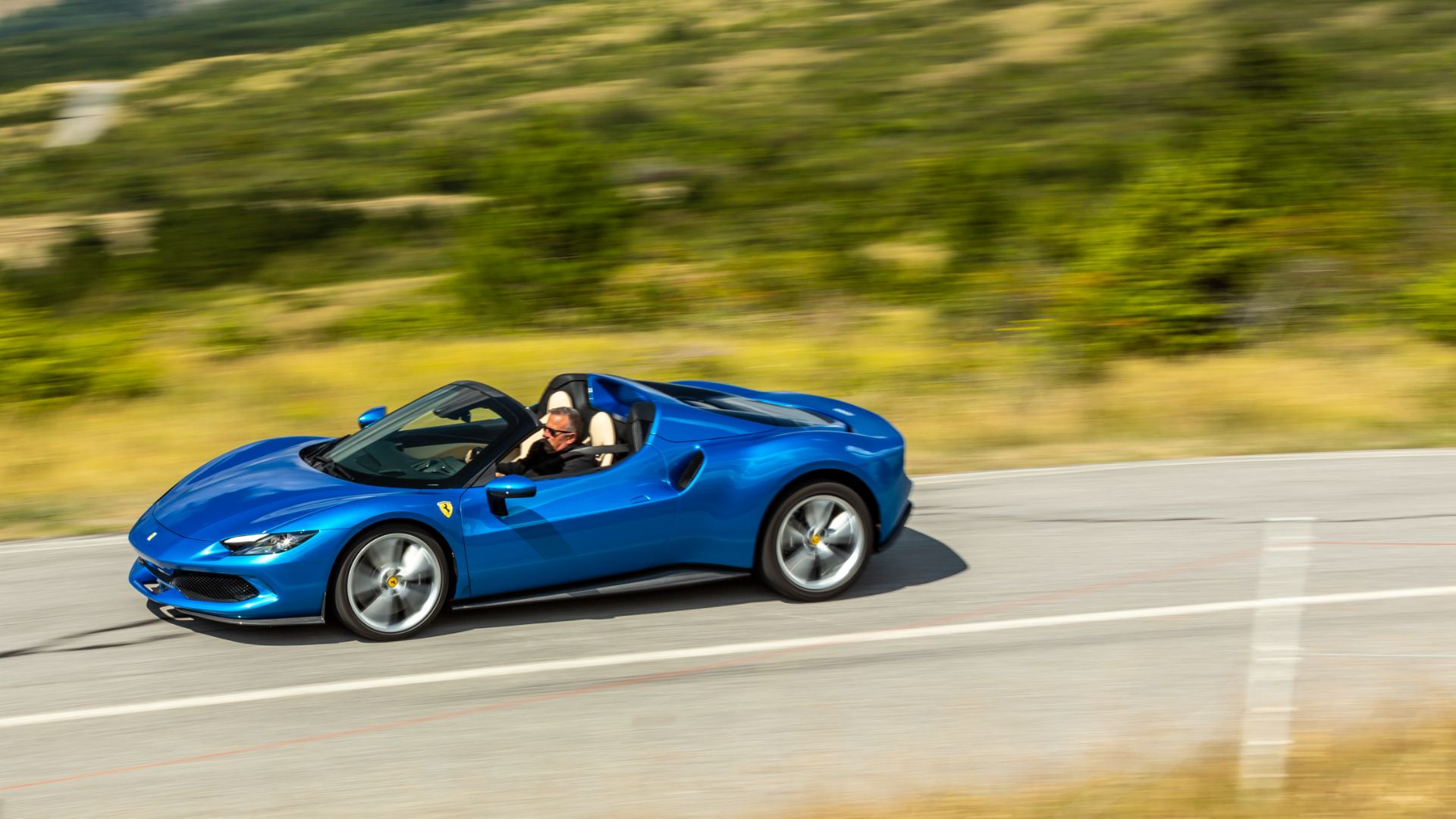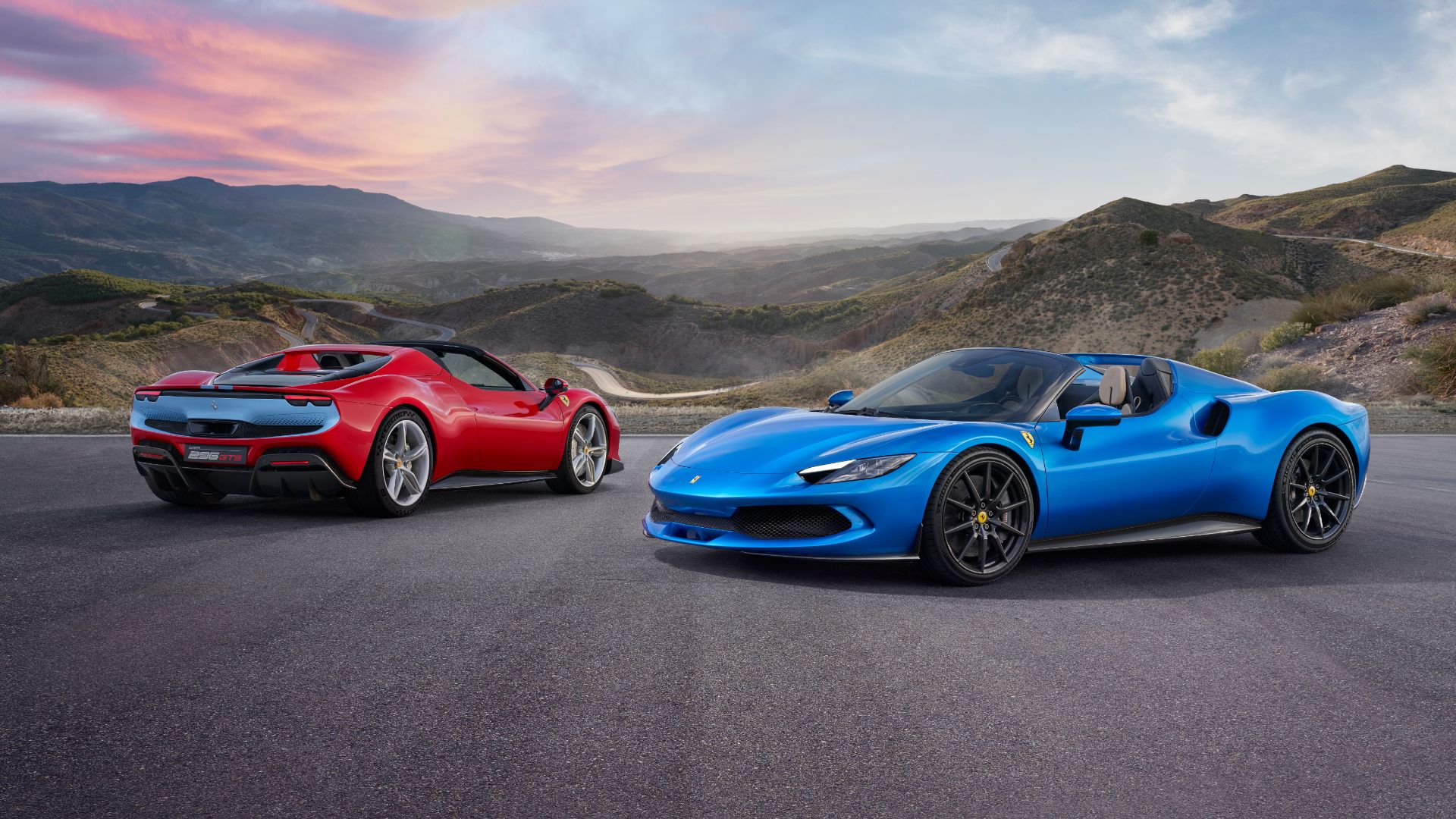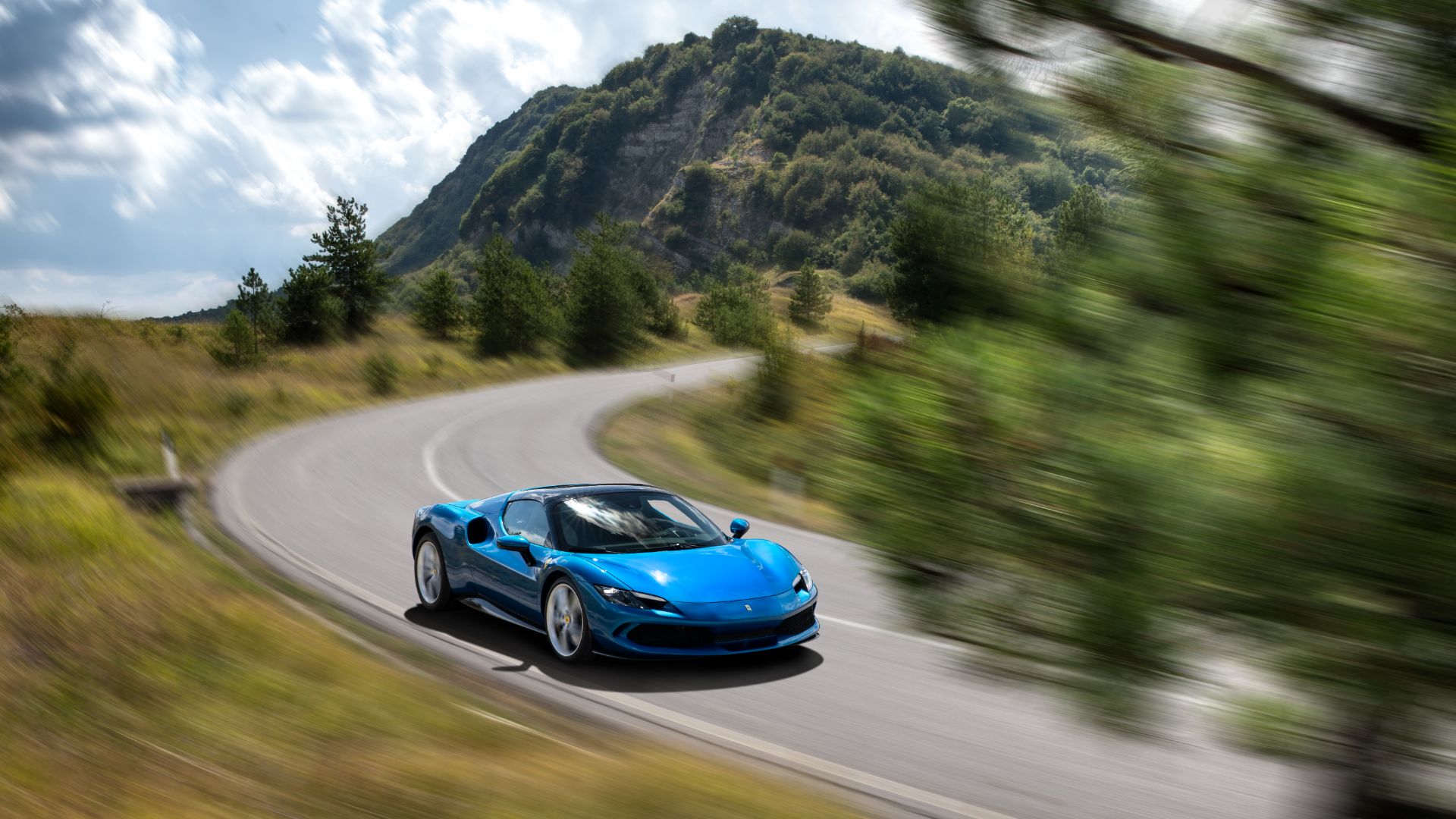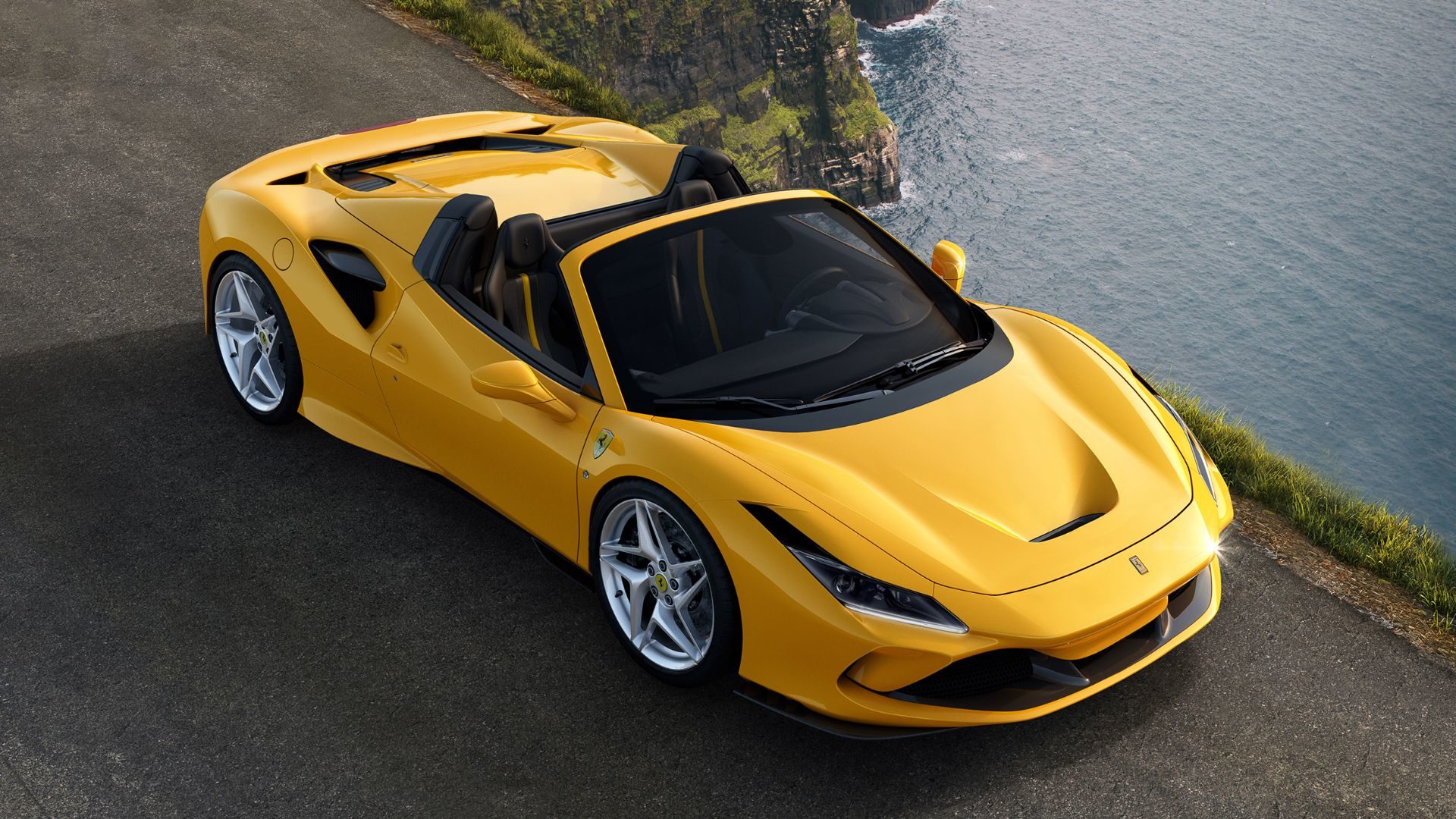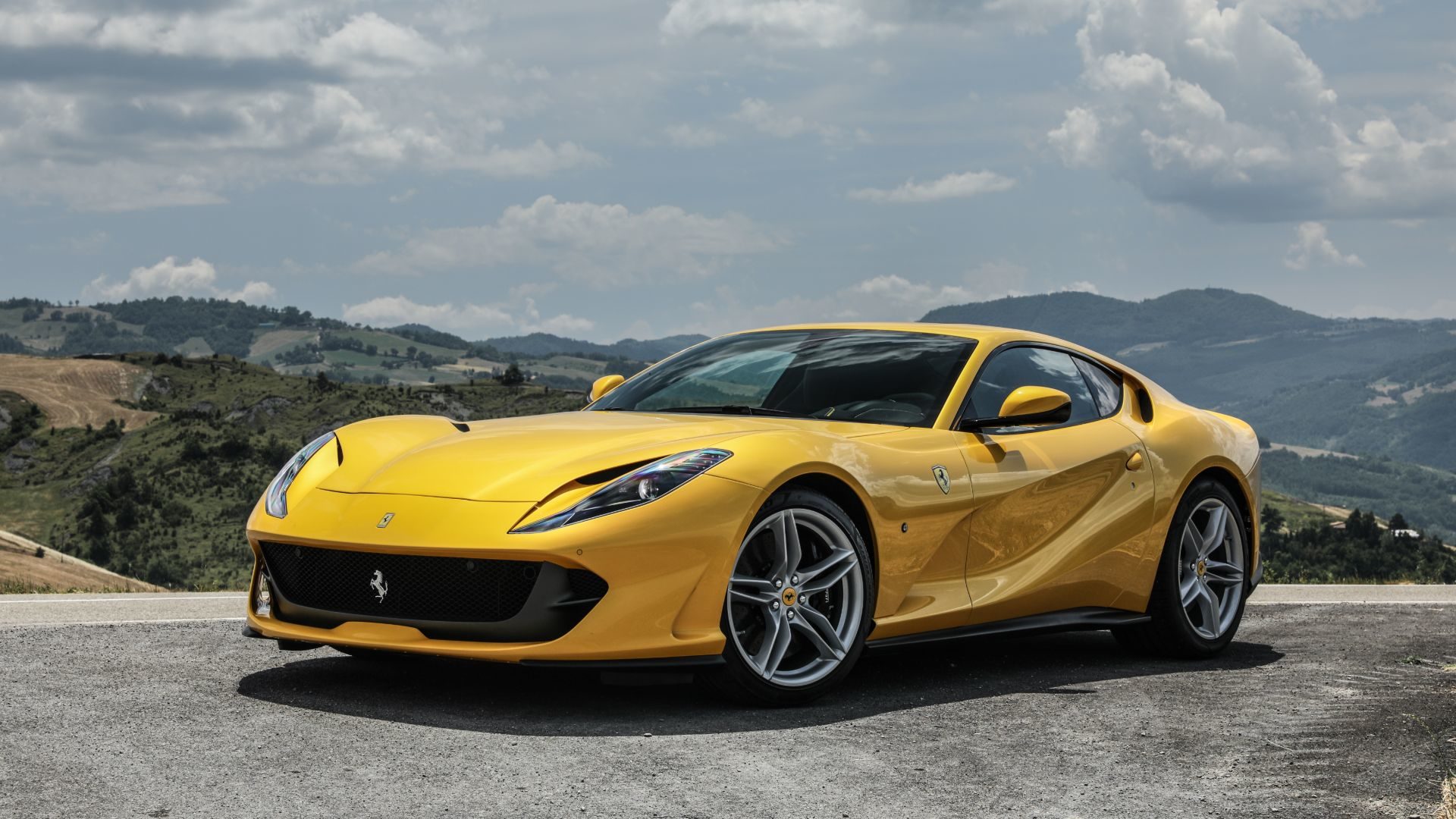Ferrari is a religion in Italy, but the true-believing Tifosi have been sorely tested of late. The F1 cars of Charles Leclerc and Carlos Sainz have fallen off the pace, and the Scuderia has lost its early lead in the World Championship.
Last month, Ferrari also revealed the new Purosangue, a family SUV that borders on blasphemy after 75 years of sports cars.
Thankfully, the Pope is still Catholic and Maranello still builds two-seat cars with outrageous engines in the middle. Add elegant styling, cutting-edge chassis tech and the opportunity for al fresco driving to the mix, and the new 296 GTS – billed as ‘the most fun Ferrari in the range’ – seems like much-needed manna from heaven.
Raising the stakes
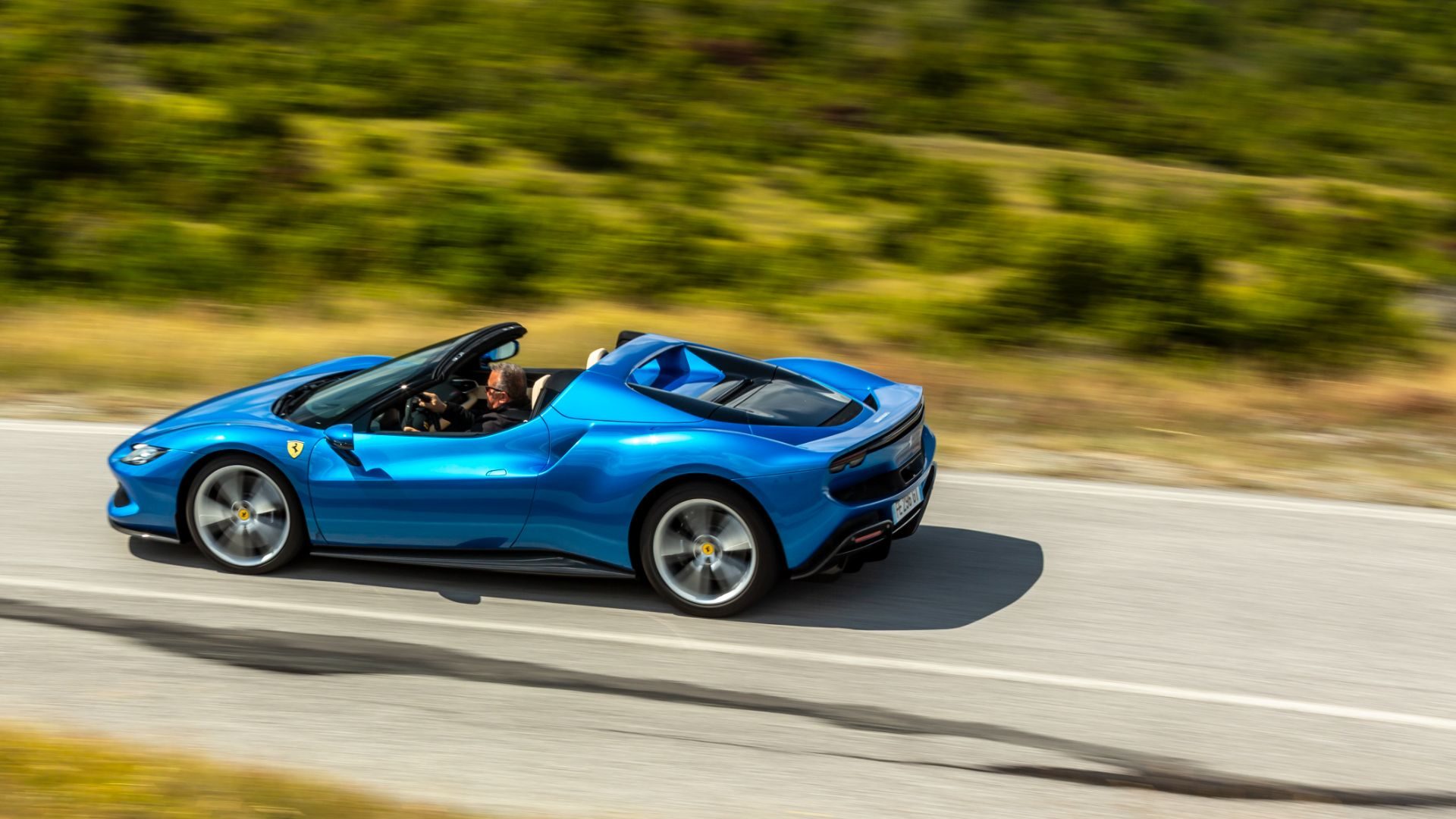
The GTS is the open version of the critically lauded 296 GTB, with a rotating roof that disappears beneath its glass rear deck in 14 seconds. It effectively replaces the F8 Spider, although it raises the stakes in terms of both power (a colossal 830hp) and price (a not-inconsiderable £278,893).
On paper, then, Ferrari’s ‘junior’ supercar is already a league above a McLaren Artura, Lamborghini Huracan or Maserati MC20.
The beating heart of the 296 GTS is a 3.0-litre turbocharged V6 that revs to 8,500rpm, plus a plug-in hybrid system with a 7.45kW battery. Together, they drive the rear wheels via an eight-speed dual-clutch gearbox.
The motorised aluminium roof only adds 70kg, so sprint times are almost identical to the coupe: 0-62mph in 2.9sec and 0-124mph in 7.6sec. Alternatively, spare the horses and you can travel 15.5 miles in zero-emissions eDrive mode.
Plug-in and play
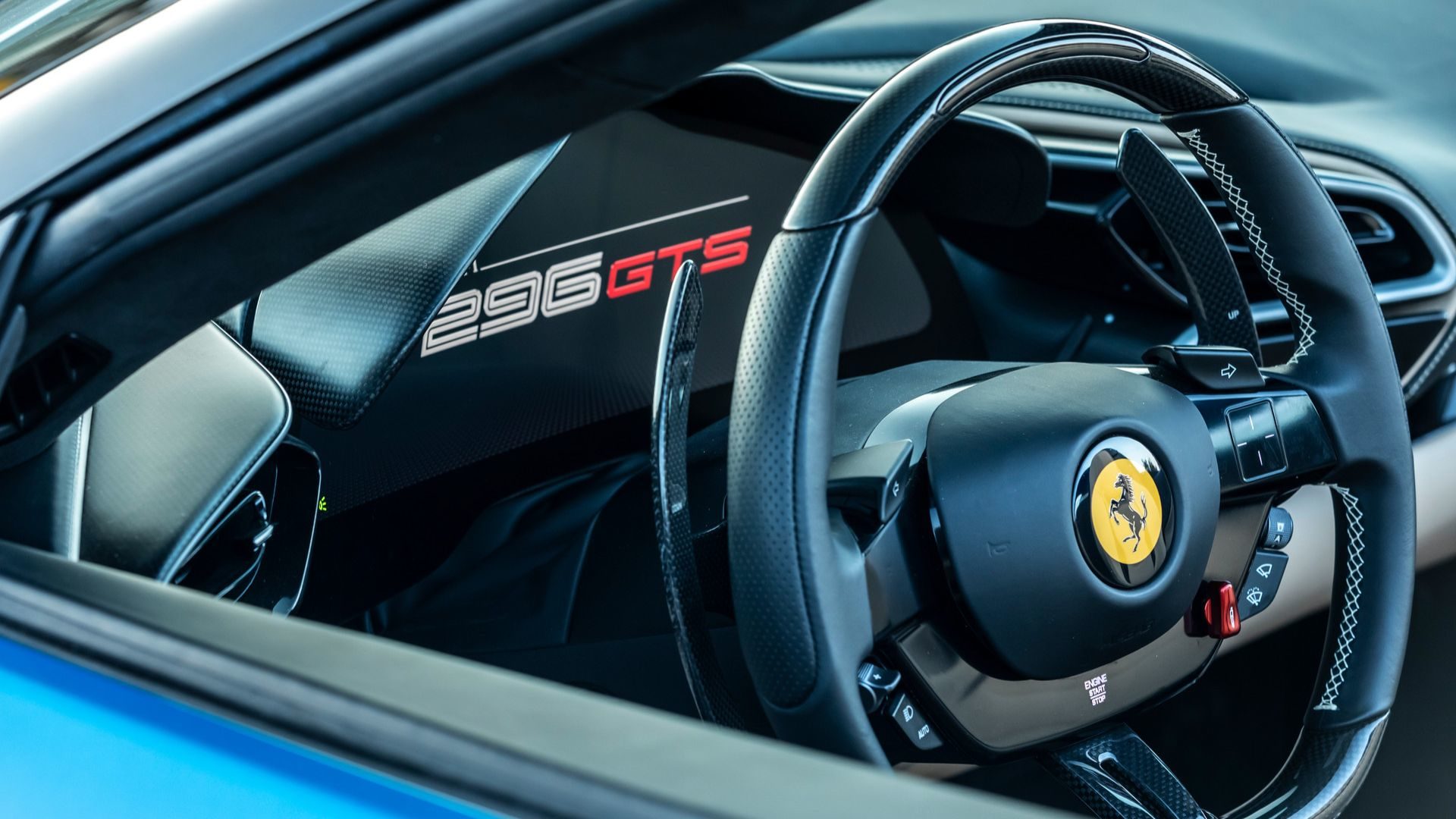
It’s shortly after dawn in Fiorano, home of Ferrari’s famous test circuit, so I depart the hotel in considerate electric silence. It feels odd driving a supercar without the commotion of combustion – like watching a Grand Prix with the volume muted – yet I’m grateful for a chance to gather my thoughts; the touch-sensitive controls clustered on the 296’s steering wheel are bewildering at first. McLaren’s approach, where the wheel is used purely for changing direction, works better for me.
Nonetheless, the driving position of the GTS is wonderfully low-slung, its shapely seats beautifully trimmed in rich Italian leather. Cruising at well into three figures on the autostrada (don’t worry, officer, we’re talking kilometres per hour), refinement with the roof up is impressive.
Then I switch to Hybrid mode and the wide-angle 120-degree V6 wakes up with a brusque bark. Ferrari engineers call it the piccolino V12 (little V12) and I’m about to discover why.
Heading into the hills, I select maximum-attack Qualify mode. Now all 830 horses are unleashed, with the force of a controlled explosion. Throttle response – boosted by ‘torque fill’ from the battery – and the gear shifts via the long carbon fibre paddles are both savagely sharp, the 296 GTS piling on speed with manic intensity.
Turn up the volume
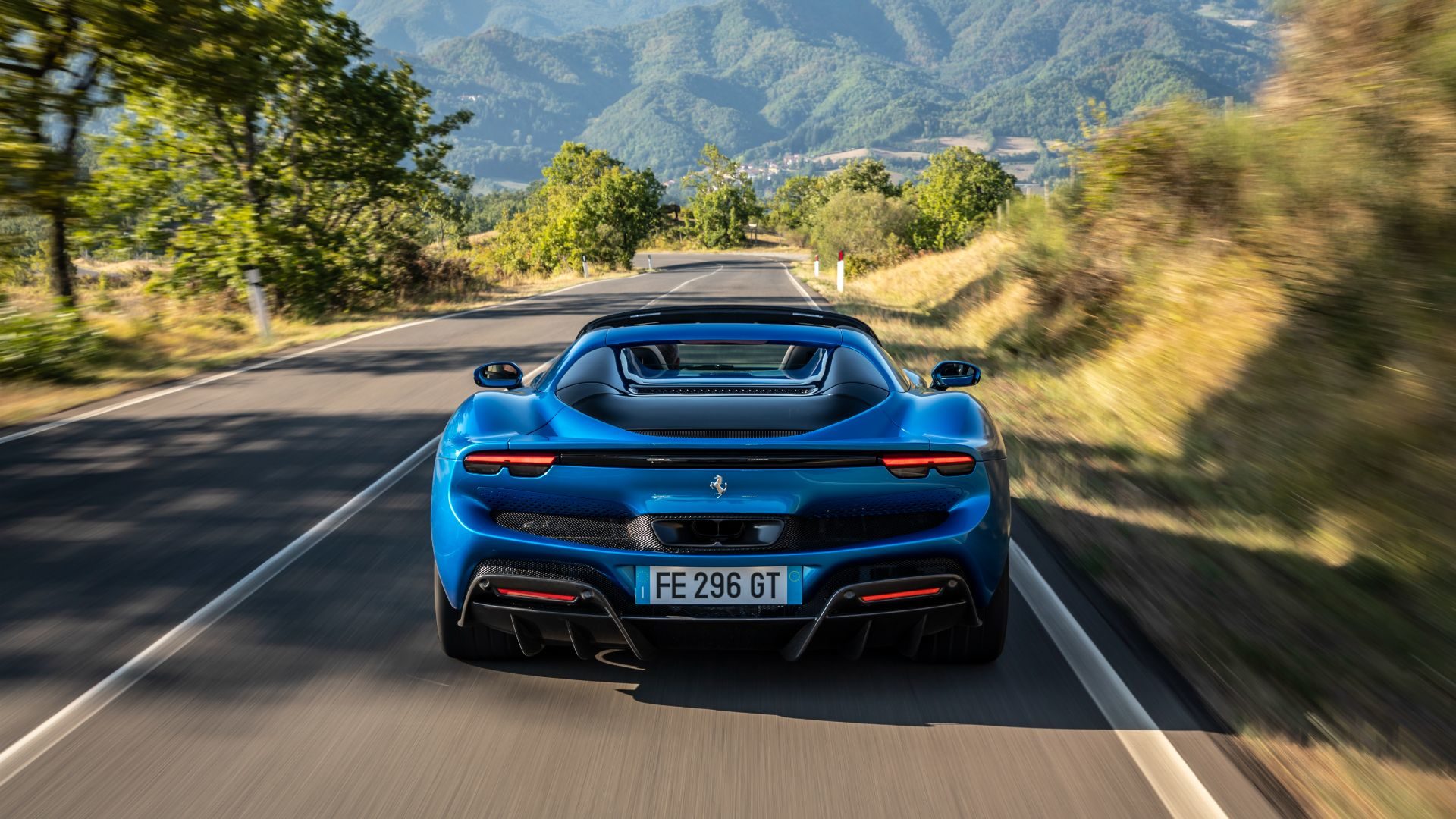
The V6 has found its voice now, too. Its bared-teeth snarl at high revs really is redolent of a V12, and is overlaid with the flutters and gasps of forced induction. Ferrari’s patented ‘hot tube resonator’ already channels much of this into the cabin, but lowering the roof adds extra layers of surround-sound. It seduces and overwhelms in equal measure.
Beyond the sound and the fury, though, the 296 is joyous at any speed. Its steering is lucid and precise, its electronic dampers seem to breathe with the road and the whole car feels progressive and keenly balanced. Underneath, an arsenal of electronic wizardry is analysing every split-second of your progress, but the combined effect is reassuringly analogue. And far more manageable than 830hp has any right to be.
If your faith in Ferrari has been shaken, the 296 GTS will surely help restore it. As for F1 success, there is always next year…
ALSO READ:
Lamborghini Aventador Ultimae Roadster review
Bizzarrini 5300 GT Corsa Revival review
